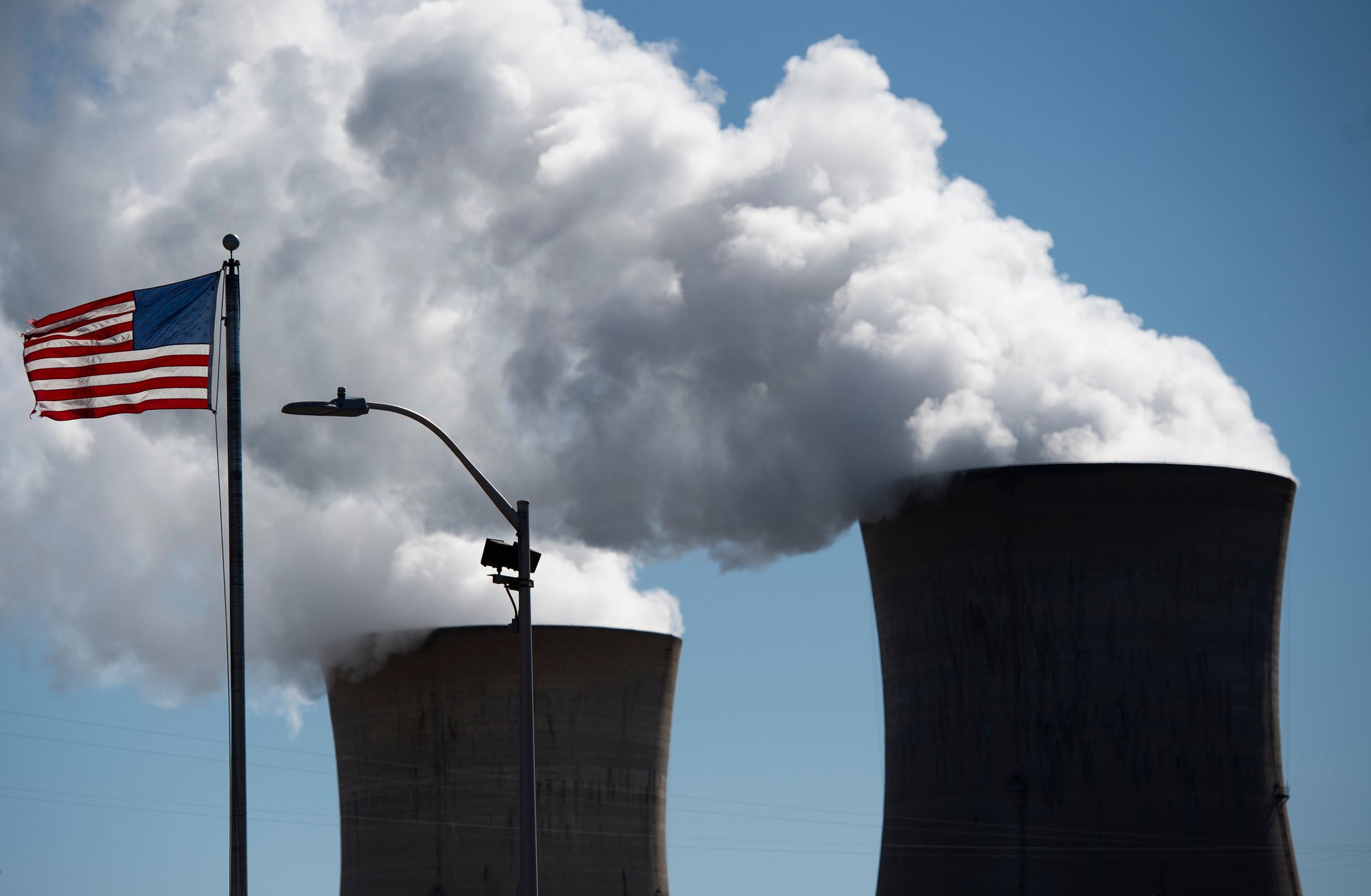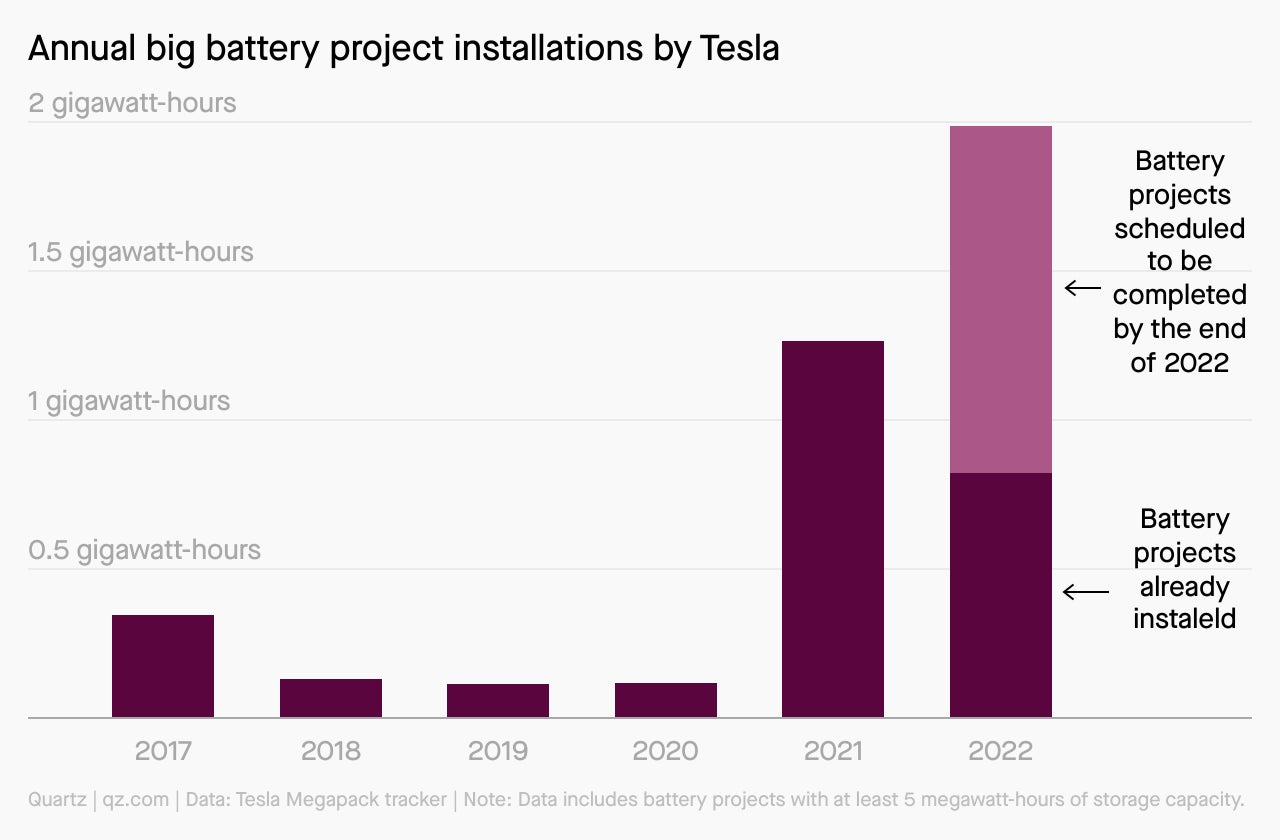🌍 SCOTUS curbs EPA
Good morning, Quartz readers!


Good morning, Quartz readers!
Here’s what you need to know
The US Supreme Court weakened the Environmental Protection Agency’s power to regulate emissions. The move hinders the country’s ability to fight climate change. Coming up on the docket: affirmative action, gay rights, and federal election powers.
Ketanji Brown Jackson was sworn in as a US Supreme Court justice. She is the first Black woman to sit on the highest court in the nation.
The S&P 500 posted its worst first half of the year in decades. The stock market index dropped 21% in the first six months of 2022, its largest percentage loss since 1970.
Google will pay $90 million to small app developers. The payout, ordered by a California court, will settle a lawsuit alleging the tech giant violated antitrust laws.
The US is launching a $1 billion pilot to build racial equity in roads. The infrastructure program aims to reconnect neighborhoods that have been racially segregated or isolated by roadways.
New York State denied a permit to a crypto power plant. The state’s Department of Conservation said emissions from the mining operation would hinder climate goals.
Ecuador’s government and Indigenous protestors reached a deal. The government has agreed to decrease fuel prices and enact mining restrictions, ending 18 days of demonstrations.
What to watch for
T-Mobile will shut off the last vestiges of its 3G cellular network in the US today. Other major US carriers, including AT&T and Sprint, have already axed their 3G networks to clear out more radio frequency bands for new 5G ones. Verizon plans to follow suit by the end of the year. The death of 3G will render some older phones, Kindles, and OnStar roadside assistance systems useless—although most devices sold in the last decade should be compatible with newer networks.
After launching in 2002, 3G cell networks helped usher in the age of the smartphone, giving mobile devices fast enough internet speeds that users could stream videos and scroll through social media feeds. While 3G networks are starting to shut down across the US, Europe, and Japan, 3G remains a crucial link to the web for smartphone users around the world—especially in poor countries like Cuba, where a brand new 3G network helped protesters organize and document historic nationwide anti-government demonstrations last year.
Giant Tesla batteries are killing coal and gas plants
Can a battery the size of a shipping container really end the need for coal- and gas-fired “peaker” plants, which run when there’s a high demand for energy?
Tesla’s Megapack batteries are starting to live up to that promise in the US. The company is accelerating utility-scale battery construction at a pace that increased nearly tenfold in 2021. The big batteries can store renewable energy when demand is low, and pump it back out to the grid when demand is high.

Tesla isn’t the only company obsessed with big batteries. LG and Samsung are key rivals. But while the race to build the big guys could build fortunes for the companies that come to dominate the industry, it will also play a crucial role in weaning the world off of fossil fuels.
Abortion laws make a strong argument for cash
Now that the US Supreme Court has overturned Roe v. Wade, Americans are raising concerns about what data police and prosecutors could access to incriminate people who seek abortions. If law-enforcement officials can’t access medical documents, they could turn to financial services companies for data on payment transactions.
Remember cash? Paying for abortion services with cash could be one way to avoid detection, posing a challenge to the idea that cash is on its way out, as Quartz reporter Michelle Cheng explains.
✦ Quartz journalists are able to pursue stories like these thanks to your support. Become a Quartz member today, and take 40% off when you sign up.
Surprising discoveries
A Canadian radio station played one song for 10 hours. Rage Against the Machine’s “Killing in the Name” on repeat was in protest to the firing of two DJs.
One cherry sold for $296. A box of 15 Juno Heart cherries, a variety developed in Aomori, Japan, fetched 600,000 yen ($4,420) at auction.
More and more people truly believe AIs are sentient. It could be harmful, or it could help humans feel less lonely.
British taxpayers got a sexy business stake. After providing a loan to Killing Kittens, an adult party organizer, the UK government converted the money to an equity stake in the startup.
A rocket crashed into the Moon. And NASA can’t figure out where it came from.
Our best wishes for a productive day. Send any news, comments, expensive fruit, and AI friends to [email protected]. Reader support makes Quartz available to all—become a member. Today’s Daily Brief was brought to you by Nicolás Rivero, Julia Malleck, Susan Howson, Morgan Haefner, and Samanth Subramanian.